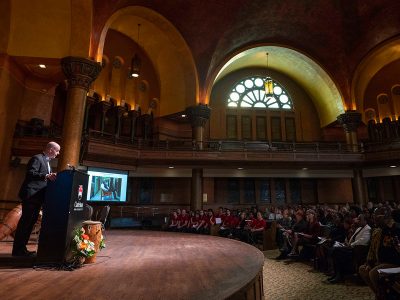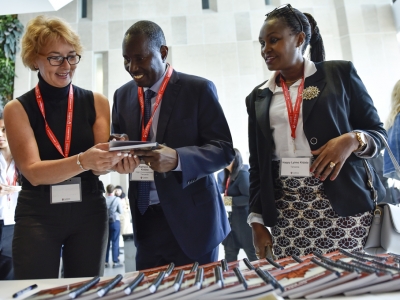By Dan Rubinstein
When Carleton University was formally and unanimously admitted into membership of the University of the Arctic (UArctic) at the network’s annual assembly in Inari, Finland, last weekend, the organization gained an international leader in Arctic research and education. Carleton has a long history of collaborating with northern communities to help empower the next generation of leaders and address societal, environmental and economic challenges in the region.
“Our Arctic and northern research is characterized by strong partnerships with Indigenous and non-Indigenous communities, combining scientific research with traditional knowledge to tackle some of this era’s most pressing issues,” said Carleton President Wisdom Tettey, who delivered a presentation at the UArctic assembly.
“There is no shortage of opportunities for our students to work and learn in the North, and for students from the Arctic to both contribute to and benefit from our institution. Moreover, Ottawa is just a three-hour flight to Iqaluit, the capital of Nunavut, which makes Carleton an important gateway to the North.”

President Tettey having a discussion with Carleton University Associate Vice-President (International) Betina Appel Kuzmarov in Finland (photo courtesy UArctic)
Based in Finland, UArctic is a network of universities, colleges, research institutes and other organizations. It enhances human capacity in the North through education, research and outreach, promoting sustainable communities and economies and forging global partnerships.
The network has more than 200 member institutions and organizations spanning 24 time zones in the eight Arctic countries and beyond. Carleton was asked to join because of its significant Arctic research profile, which can help UArctic broaden the scope and depth of its work.
“Joining this group is a perfect fit,” said Tettey.
“It will enhance our existing partnerships while opening up new areas of research and collaboration.”
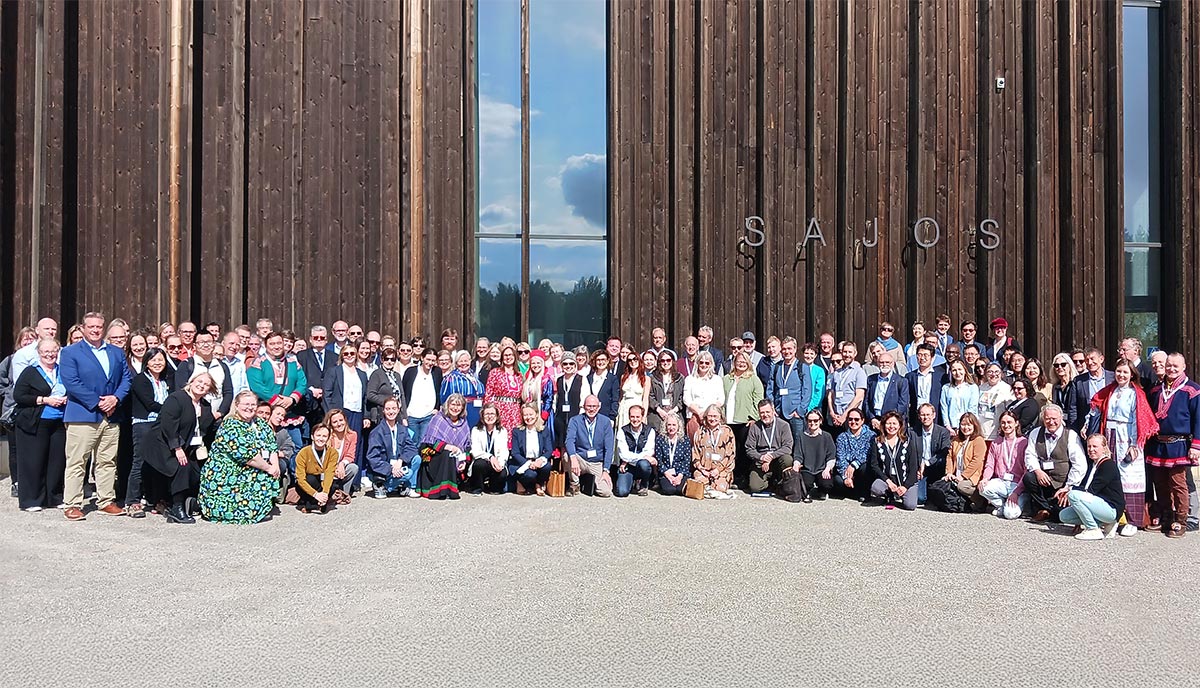
Climate Change and Environmental Conversation
Global warming is having a more significant impact on the Arctic than other parts of the planet and, accordingly, Carleton’s research in the North focuses on areas such as climate change, environmental conservation and sustainable development.
Stephan Gruber from the university’s Geography and Environmental Studies program is the scientific director of NSERC PermafrostNet, a $5.5-million initiative that unites university researchers with partners in government agencies, industry and Indigenous communities, who share the common goal of boosting Canada’s ability to monitor, predict and adapt to large-scale permafrost thaw and its consequences.

Carleton University professor Stephan Gruber (photo by Lindsay Ralph)
Gruber’s departmental colleague Peter Pulsifer is the co-lead of the Arctic Genomics team, which is collaborating with northern partners to co-develop a suite of genomics knowledge-mobilization tools to support environmental decision making in areas such as biodiversity monitoring and wildlife management — areas that are key to the social, cultural, physical and economic well-being of northern Indigenous Peoples.
Stephan Schott from Carleton’s School of Public Policy & Administration is the co-lead of the $5.6-million Towards a Sustainable Fishery for Nunavummiut project. Working with hunters’ and trappers’ associations in Nunavut, it supports the responsible development of sustainable northern fisheries.

Carleton University professor Stephan Schott
“Carleton’s researchers are internationally recognized for their work in permafrost science, northern policy, climate change and sustainability,” said Rafik Goubran, Vice-President (Research and International).
“Joining the UArctic consortium reflects the leadership of our award-winning scholars and their collaborations across the North.”
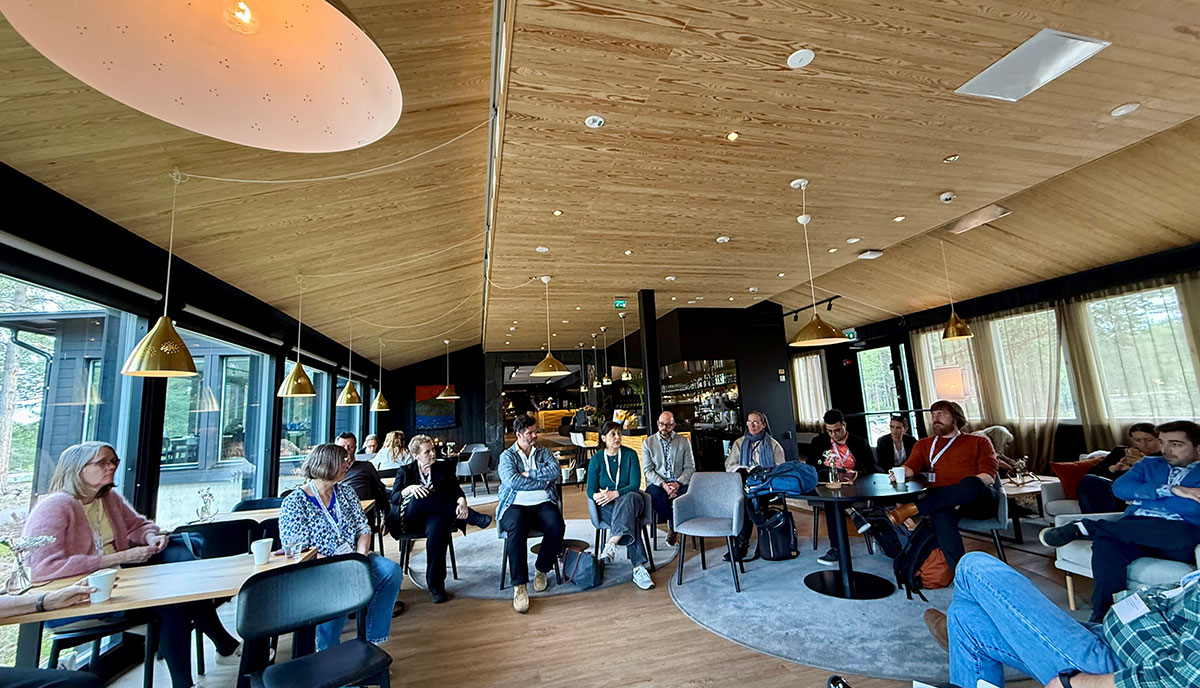
Student Exchange and Community Collaboration
One of the UArctic’s pillars is its north2north program, which provides students from around the world with opportunities to study in different parts of the North.
Carleton is already active on the academic exchange front, partnering with Nunavut Arctic College (NAC), which is also a UArctic member.
 Last December, students from the college’s Environmental Technology Program visited Carleton as part of a growing collaboration aimed at encouraging Inuit participation in postsecondary education and environmental science careers. The exchange, organized by Carleton’s Centre for Indigenous Support and Community Engagement (CISCE) and NAC, is an annual initiative that fosters academic connections between the institutions.
Last December, students from the college’s Environmental Technology Program visited Carleton as part of a growing collaboration aimed at encouraging Inuit participation in postsecondary education and environmental science careers. The exchange, organized by Carleton’s Centre for Indigenous Support and Community Engagement (CISCE) and NAC, is an annual initiative that fosters academic connections between the institutions.
“This program is an integral part of supporting Inuit in pursuing postsecondary education that will ultimately strengthen Nunavut sovereignty,” said CISCE director Benny Michaud.
“By providing pathways for Inuit to join bachelor programs designed to support future work in northern environmental conservation, Carleton is practising allyship by helping to champion Inuit self-government.”
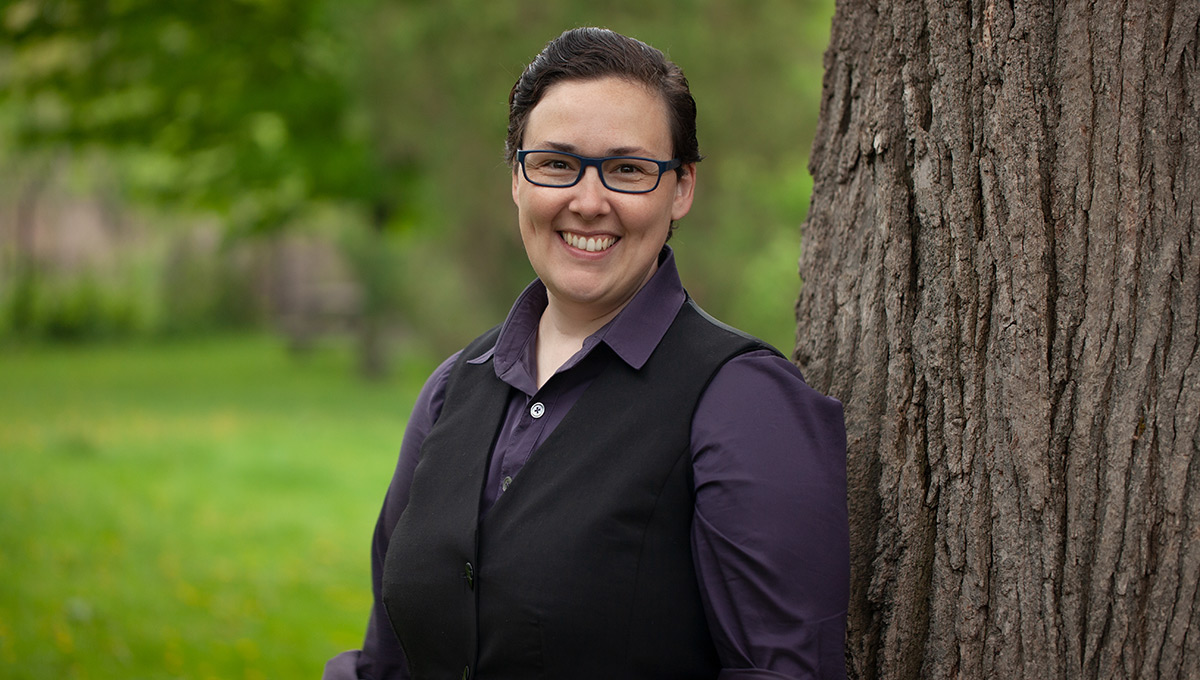
Centre for Indigenous Initiatives Director Benny Michaud
Looking ahead, CISCE is currently working with Nunavut-based Sivumuut Solutions, Polar Knowledge Canada (another UArctic member) and the Canadian High Arctic Research Station to establish an Arctic land-based learning course that will be offered by Carleton.
All of these educational offerings and research projects — which are just the tip of the iceberg at Carleton — reflect the university’s dedication to addressing the unique challenges and opportunities in Canada’s northern regions.
“Our interdisciplinary approach to Arctic research and studies provides scientists, policymakers and local officials with the knowledge they need to mitigate and adapt to the complex issues facing all Canadians, particularly those in the North,” said Tettey.
“As national and international interest in the region continues to grow, Carleton’s collaborations — including work with our new partners at the University of the Arctic — will become even more vital.”
Friday, June 13, 2025 in Indigenous, Leadership, Partnerships, Public Policy
Share: Twitter, Facebook


